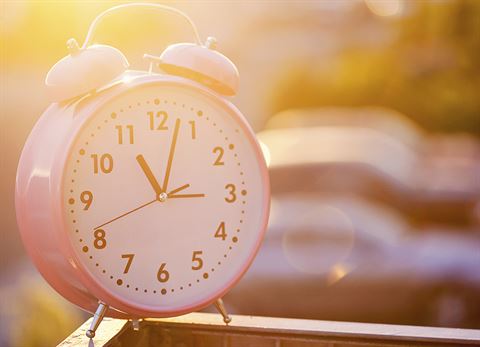Wellbeing • April 2015
How does an expert flyer deal with jetlag?
A Senior First Officer for British Airways, Mark Vanhoenacker flies Boeing 747s to long-haul destinations across the network. He is also the author of the upcoming book, Skyfaring: A Journey with a Pilot in which he shares his love of flying. Here he gives readers of The Club his advice for beating jetlag
The Club has five signed copies to give away
What’s the first thing you do once you get home after a long flight?
On the day of arrival, I try not to do anything too mentally challenging. I might do some unpacking or laundry. Going out to the supermarket and then cooking something easy is a great way to make it through until evening. At least it keeps you standing up.
Do you have anything to eat?
I tend not to want to eat after long overnight flights, but I always feel better when I do. I know customers often don’t eat breakfast on the plane because they want to maximise their on-board rest or because it doesn’t feel quite like mealtime yet. But if you can grab a banana or some yogurt in the Galleries Arrivals lounge or the terminal, even if you don’t feel hungry, it can make all the difference.
Do you go to bed straight away or try to stay up?
I have an 11am rule – if I can reach my pillow before 11am, I’ll go to sleep for a few hours (though no more than three or I’ll have trouble sleeping later). If I’m home after 11am, I’ll stay up until a normal bedtime.
What if you struggle to get to sleep?
Reading or listening to a podcast in bed usually sends me to sleep. If I’m still not asleep after 15-20 minutes, I’ll get up and do something for a while, then try again. Eyeshades and earplugs are really important. I’m a big fan of the ones by Bucky.
When do you change the time on your watch?
As a pilot I don’t change my watch when I’m overseas – I find it less confusing to keep it on London time, especially as the aviation industry runs on GMT, which is local time in London for part of the year anyway. When I’m travelling as a passenger, I change my watch as soon as I board the plane.
Is it worth getting into the new time zone when you’re away?
When it comes to jet lag, pilots and cabin crew are similar to business travellers – we may not stay in a city long enough to become adjusted to the time there before we fly home. For me this means the goal is less about switching to local time than about making sure I get eight hours or more sleep in every 24-hour period. Many pilots prefer trips to Africa because, even though the flights are typically overnight, there’s little or no time change.

How long does it take for you to shake off jet lag?
For long trips, the standard rule is one day per time zone crossed. Many pilots and business travellers find their recovery time is shorter after westbound journeys and longer after eastbound journeys. That’s certainly my own experience.
Any quick tips on how to combat jet lag?
It’s not always fun, but exercise is one of the best things you can do. It invigorates you and means you’ll sleep better later. If you don’t want to go out for a run or to the gym, there are express workouts you can do in a hotel room, guided by your smartphone. I like the Seven Minute Workout app.
Is there anything I can do as soon as I step off the plane?
It’s a small thing, but try to avoid the moving walkways in airports (as long as your suitcase has wheels). So many recent studies have highlighted the health benefits of simply increasing the number of steps we take each day. And after you’ve spent so much time sitting down on a plane, it can feel great just to move around.
Skyfaring: A Journey with a Pilot is published 2 April in the UK and 2 June in the US.